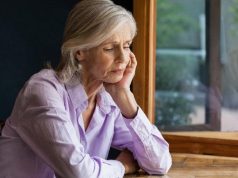Psychological treatment and education can be useful, too, more so than drugs, researchers find
FRIDAY, March 3, 2017 (HealthDay News) — Exercise and/or behavioral and educational therapy may be more effective than prescription drugs for dealing with cancer-related fatigue, according to a meta-analysis published online March 2 in JAMA Oncology.
Karen Mustian, Ph.D., M.P.H., an associate professor with the University of Rochester Medical Center’s Wilmot Cancer Institute in New York, and colleagues looked at 113 past studies that included 11,525 adult cancer patients. Almost half of the patients included in the review were women with breast cancer. Seventy-eight percent of study participants were women, average age 54. The analysis excluded studies that looked at complementary therapies, with an exception made for alternative exercise treatments, such as yoga or tai chi. In addition, the research team didn’t include studies that had assessed drug treatments involving erythropoietin medications.
Studies included looked at the impact of four different treatment approaches: exercise alone; mental health interventions aimed at providing information and/or helping patients understand and adapt to their current situation; a combination of both exercise and psychological treatment; and prescription drugs, including stimulant medications. All four interventions led to improvement in fatigue. But the researchers found that exercise therapy led to the best outcomes. But psychological therapies produced similarly positive results, as did treatments that integrated exercise with mental health efforts.
“Exercise and psychological interventions are effective for reducing cancer-related fatigue during and after cancer treatment, and they are significantly better than the available pharmaceutical options,” the authors write. “Clinicians should prescribe exercise or psychological interventions as first-line treatments for cancer-related fatigue.”
Abstract/Full Text (subscription or payment may be required)
Copyright © 2017 HealthDay. All rights reserved.








